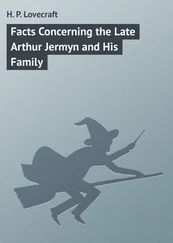Margaret Oliphant - A Country Gentleman and his Family
Здесь есть возможность читать онлайн «Margaret Oliphant - A Country Gentleman and his Family» — ознакомительный отрывок электронной книги совершенно бесплатно, а после прочтения отрывка купить полную версию. В некоторых случаях можно слушать аудио, скачать через торрент в формате fb2 и присутствует краткое содержание. Жанр: foreign_prose, на английском языке. Описание произведения, (предисловие) а так же отзывы посетителей доступны на портале библиотеки ЛибКат.
- Название:A Country Gentleman and his Family
- Автор:
- Жанр:
- Год:неизвестен
- ISBN:нет данных
- Рейтинг книги:5 / 5. Голосов: 1
-
Избранное:Добавить в избранное
- Отзывы:
-
Ваша оценка:
- 100
- 1
- 2
- 3
- 4
- 5
A Country Gentleman and his Family: краткое содержание, описание и аннотация
Предлагаем к чтению аннотацию, описание, краткое содержание или предисловие (зависит от того, что написал сам автор книги «A Country Gentleman and his Family»). Если вы не нашли необходимую информацию о книге — напишите в комментариях, мы постараемся отыскать её.
A Country Gentleman and his Family — читать онлайн ознакомительный отрывок
Ниже представлен текст книги, разбитый по страницам. Система сохранения места последней прочитанной страницы, позволяет с удобством читать онлайн бесплатно книгу «A Country Gentleman and his Family», без необходимости каждый раз заново искать на чём Вы остановились. Поставьте закладку, и сможете в любой момент перейти на страницу, на которой закончили чтение.
Интервал:
Закладка:
Thus it was the mother alone to whom the thought of change was pleasant. A woman of forty-five in widow's weeds, who had just nursed her husband through a long illness and lost him, and whose life since she was nineteen had been spent in this quiet house among all these still surroundings, amid the unchangeable traditions of rural life, – who could have ventured to imagine the devouring impatience that was within her, the desire to flee, to shake the dust off her feet, to leave her home and all her associations, to get out into the world and breathe a larger air and be free? Sons and daughters may entertain such sentiments; even the girls, whose life, no doubt, had been a dull one, might be supposed willing enough, with a faint pretence of natural and traditionary reluctance, and those few natural tears which are wiped so soon, to leave home and see the world. But the mother! In ordinary circumstances it would have been the duty of the historian to set forth the hardness of Mrs. Warrender's case, deprived at once, by her husband's death, not only of her companion and protector, but of her home and position as head of an important house. Such a case is no doubt often a hard one. It adds a hundred little humiliations to grief, and makes bereavement downfall, the overthrow of a woman's importance in the world, and her exile from the sphere in which she has spent her life. We should be far more sure of the reader's sympathy if we pictured her visiting for the last time all the familiar haunts of past years, tearing herself away from the beloved rooms, feeling the world a blank before her as she turned away.
On the contrary, it is scarcely possible to describe the chill of disappointment in her mind when Theo put an abrupt stop to all speculations, and offered her his arm to lead her upstairs. She ought, perhaps, to have wanted his support to go upstairs, after all, as her maid said, that she had "gone through": but she did not feel the necessity. She would have preferred much to know what was going to be done, to talk over everything, to be able to express without further sense that they were premature and inappropriate, as much as it would be expedient to express of her own wishes. The absolute repression of those five dark days, during which she had said nothing, had been almost more intolerable to her than years of the repression which was past. When you know that nothing you can do or say is of any use, and that whatsoever struggle you may make will be wholly ineffectual to change your lot, it is comparatively easy, in the composure of impossibility, to keep yourself down; but when all at once you become again master of your own fate, even a temporary curb becomes intolerable. Mrs. Warrender went into her room by the compulsion of her son and conventional propriety, and was supposed to lie down on the sofa and rest for an hour or two. Her maid arranged the cushions for her, threw a shawl over her feet, and left her on tip-toe, shutting the door with elaborate precautions. Mrs. Warrender remained still for nearly half an hour. She wept, with a strange mixture of feelings; partly out of a poignant sense of the fictitiousness of all these observances by which people were supposed to show "respect" to the dead, and partly out of a real aching of the heart and miserable sense that even now, that certainly by and by, the man who had been so all-important a little while ago would be as if he had not been. She wept for him, and yet at the same time wept because she could not weep more for him, because the place which knew him had already begun to know him no more, and because of the sham affliction with which they were all supplementing the true. It was she who shed the truest tears, but it was she also who rebelled most at the make-believe which convention forced upon her; and the usual sense of hopeless exasperation was strong in her mind. After a while she threw off the shawl from her feet and the cushions that supported her shoulders, and got up and walked about the room, looking out upon the afternoon sunshine and the trees that were turning their shadows to the east. How she longed, with a fervour scarcely explainable, not at all comprehensible to most people, to leave the place, to open her wings in a large atmosphere, to get free!
At half-past four o'clock Minnie and Chatty went down to tea. They were to the minute, and their mother heard them with a half smile. It was always time enough for her to smooth her hair and her collar, and take a new handkerchief from her drawer, when she heard the sisters close their door. She went downstairs after them, in her gown covered with crape, with her snowy cap, which gave dignity to her appearance. Her widow's dress was very becoming to her, as it is to so many people. She had a pretty complexion, pure red and white, though the colour was perhaps a little broken, and not so smooth as a girl's; and her eyes were brown and bright. Notwithstanding the weeks of watching she had gone through, the strain of everything that had passed, she made little show of her trouble. Her eye was not dim, nor her natural force abated. The girls were dull in complexion and aspect, but their mother was not so. As she came into the room there came with her a brightness, a sense of living, which was inappropriate to the hour and the place.
"Where is Theo?" she asked.
"He is coming in presently; at least, I called to him as he went out, and told him tea was ready, and he said he would be in presently," Chatty replied.
"I wish he would have stayed, if it had even been in the grounds, to-day," said Minnie. "It will look so strange to see him walking about as if nothing had happened."
"He has been very good; he has conformed to all our little rules," said the mother, with a sigh.
"Little rules, mamma? Don't you think it of importance, then, that every respect – "
"My dear," said Mrs. Warrender, "I am tired of hearing of every respect. Theo was always respectful and affectionate. I would not misconstrue him even if it should prove that he has taken a walk."
"On the day of dear papa's funeral!" cried Minnie, with a voice unmoved.
Mrs. Warrender turned away without any reply; partly because the tears sprang into her eyes at the matter-of-fact statement, and partly because her patience was exhausted.
"Have you settled, mamma, what he is going to do?" said Chatty.
"It is not for me to decide. He is twenty-one; he is his own master. You have not," Mrs. Warrender said, "taken time to think yet of the change in our circumstances. Theo is now master here. Everything is his to do as he pleases."
"Everything!" said the girls in chorus, opening their eyes.
"I mean, of course, everything but what is yours and what is mine. You know your father's will. He has been very just, very kind, as he always was." She paused a little, and then went on: "But your brother, as you know, is now the master here. We must understand what his wishes are before we can settle on anything."
"Why shouldn't we go on as we always have done?" said Minnie. "Theo is too young to marry; besides, it would not be decent for a time, even if he wanted to, which I am sure he does not. I don't see why he should make any change. There is nowhere we can be so well as at home."
"Oh, nowhere!" said Chatty.
Their mother sat and looked at them, with a dull throb in her heart. They had sentiment and right on their side, and nature too. Everybody would agree that for a bereaved family there was no place so good as home, – the house in which they were born and where they had lived all their life. She looked at them blankly, feeling how unnatural, how almost wicked, was the longing in her own mind to get away, to escape into some place where she could take large breaths and feel a wide sky over her. But how was she to say it, how even to conclude what she had been saying, feeling how inharmonious it was with everything around?
Читать дальшеИнтервал:
Закладка:
Похожие книги на «A Country Gentleman and his Family»
Представляем Вашему вниманию похожие книги на «A Country Gentleman and his Family» списком для выбора. Мы отобрали схожую по названию и смыслу литературу в надежде предоставить читателям больше вариантов отыскать новые, интересные, ещё непрочитанные произведения.
Обсуждение, отзывы о книге «A Country Gentleman and his Family» и просто собственные мнения читателей. Оставьте ваши комментарии, напишите, что Вы думаете о произведении, его смысле или главных героях. Укажите что конкретно понравилось, а что нет, и почему Вы так считаете.












